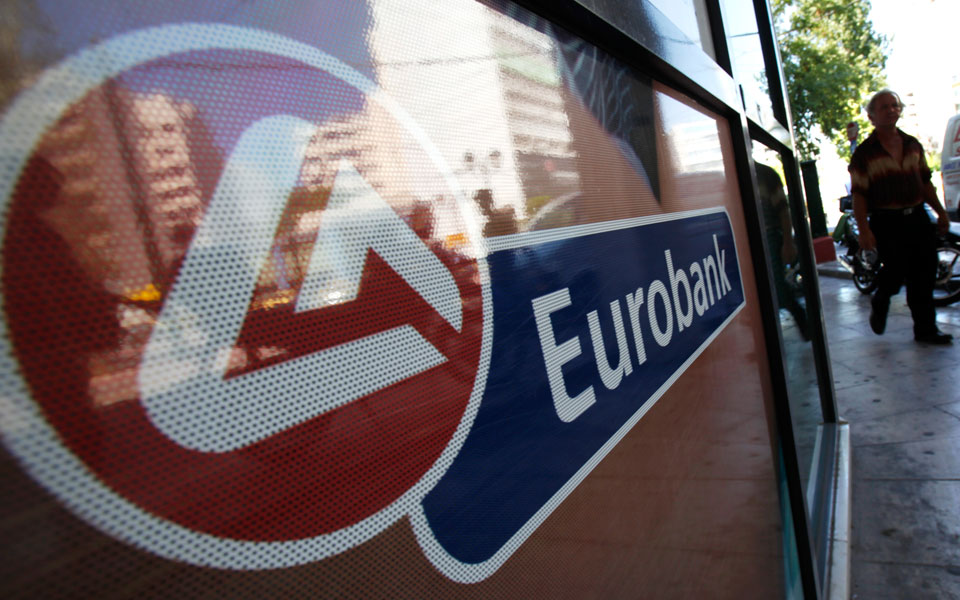Banks must act fast on nonperforming loans

The majority of analysts estimate the Greek economy will shrink or remain stagnant in 2016, but the government is more optimistic. Banks count on a rebound in economic activity to help them deal more effectively with the large stock of nonperforming loans (NPLs). However, they run the risk of missing their targets, even if the economy improves, because of execution and operational inefficiencies in restructuring or/and disposing loans. Time is not on their side.
Most analysts assume gross loans will contract again in 2016 due to little appetite for new loans: As the economy struggles and unemployment remains well above 20 percent, existing loans are amortized and the banks’ credit policy remains cautious. They also project an increase in bad loans, forcing banks to take more provisions and hurt their profitability this year.
However, the call for an increase in nonperforming loans could turn out to be pessimistic if banks move swiftly and take advantage of the new law on foreclosure of residences and the new NPL framework expected in February. As far as the new foreclosure law is concerned, a small portion of households, satisfying strict criteria, is fully protected from foreclosure. These borrowers have to apply for protection so their payments are subsidized by the state budget.
A second, relatively bigger pool of households, fulfilling less restrictive property value and income criteria, has to agree with the banks on a restructuring plan and maintain repayments up to date. It is noted that a core bank had disclosed that households belonging in the first category accounted for 6 percent of its mortgage loan book while those in the second pool for 11 percent of the mortgage book.
In general, people who are familiar with the issue think that the banks should be able to benefit from the new foreclosure law, boosting their revenues up to 8-10 percent of last year’s net interest income at maximum. “It is easier (retail loans) than dealing with the corporate loans where banking, politics and personal relationships mingle,” says one advisor.
Greek banks have set up internal recovery units to deal with nonperforming portfolios. These units and other bank departments were on high alert to inform and provide updated figures to external auditors demanded during the recapitalization process.
By all accounts, that is not the case any longer as things have gone back to business as usual since there is less pressure. Officers are unwilling to take initiatives to tackle bad loans, in many cases because they are afraid they may face prosecution since the law does not protect them or/and they get opposite instructions from higher up in the hierarchy, they say. In addition, they still lack the tools to deal with syndicated corporate loans in a coordinated way, as bank interests may diverge.
So, they are waiting eagerly for the new NPL law, expected in February, to provide the framework, guidelines and legal protection to deal with problematic loans. Advisors and others warn against complacency since a lot of business plans, on which the evaluation of loans was based during the AQR (Asset Quality Review), and stress tests conducted by the European Central Bank (ECB) in 2015, will be outdated in a few months’ time.
“The banks are at risk of losing the momentum as time goes by if they do not act fast. Financial figures have to be updated and many business plans will have to change in a few months because they will be outdated,” says a non-banker who is involved in talks. “If so, another AQR may be needed to depict the quality of the loan books in the next six to 10 months.”
It is reminded that the AQR and the stress test conducted by the ECB identified a capital shortfall of 14.4 billion euros under the adverse macroeconomic scenario. The official sector injected 5.4 billion euros in total and received mostly contingent convertible securities (CoCos) and common shares. It is noted that the European Bank for Reconstruction and Development (EBRD) participated with 250 million euros, while the IFC committed 300 million. The private sector injected the rest and about 600 million euros were saved thanks to other mitigating factors.
The banks will not be able to provide credit to the economy unless they tackle the huge stock of bad loans, estimated at more than 100 billion euros. However, they run the risk of failing if they let the time go by and kick the can down the road. In that case, even an economic recovery will not suffice.
[Kathimerini English Edition]





